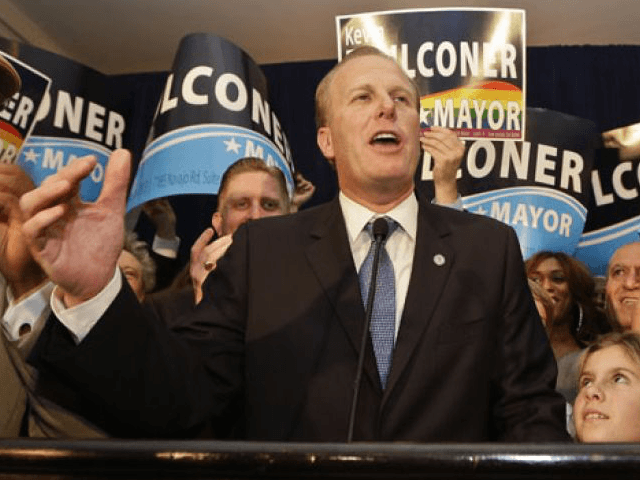San Diego Mayor Kevin Faulconer had harsh words for the San Diego Chargers in a Tuesday letter addressing Chargers Chairman and President Dean Spanos regarding the Citizens’ Stadium Advisory Group and the construction of a new football stadium.
The letter chastised Spanos’ Special Counsel Mark Fabiani in response to a letter received from Fabriani that same day that addressed the perceived demands of the task force overseeing the proposal.
Faulconer expressed his “disappointment in the ongoing actions and demeanor of Mr. Fabiani.” The mayor continued, “His divisive tone and criticism of this group of volunteers, civic leaders and the City of San Diego as a whole are not conducive to developing a plan for a new stadium.”
“San Diegans deserve better than this type of discourse,” Faulconer added in the letter, which was posted by the San Diego Union-Tribune.
The February 17 letter from Fabriani raised “issues of concern” over participants of the Stadium Advisory Group. He called assertions of the group’s independence from the office of the mayor “hard to square with the actual facts,” calling out specific staff members and political counsel associated with the mayor.
Fabriani questioned “what legal and ethical issues are raised by [Faulconer chief political consultant] Mr. Roe’s dual role as an apparent de facto Task Force member and as a registered lobbyist for the Delaware North company, which is bidding to become the new concessionaire at Qualcomm Stadium…”. He went on to suggest the City Attorney offer an opinion on the issue.
The letter also questioned the participation and asserted funding for a spokesperson, Tony Manolatos. Fabiani questioned a possible “conflict of interest in Mr. Manolatos’ representation of the Unified Port of San Diego–one of the major opponents of the Chargers’ plans for a joint use facility downtown.”
In a response letter from City Attorney Jan Goldsmith, the role of the Stadium Task Force was understood to “operate informally.” It would thus not be required to “publicly identify conflicts of interest.” Goldsmith stated that under Brown Act requirements, “it does not have to comply with the rules designed for public bodies.”
Both letters stated a desire to move forward with stadium plans in a positive fashion.
Negotiations have involved consideration of two separate possible locations for the stadium: a downtown San Diego multi-use facility option requiring major changes, or the current Mission Valley Qualcomm stadium property.
Questions have also been raised regarding the threat of the Chargers organization moving to another city such as Los Angeles if a new stadium plan does not move forward.
During Faulconer’s first ‘State of the City’ address as Mayor of San Diego, he made a point to address fears over losing the team to another city. “This is my commitment: for the first time, this year, we will have a real plan to consider for a new stadium,” said the mayor.
Funding has been a contentious aspect of the project.
Follow Michelle Moons on Twitter @MichelleDiana

COMMENTS
Please let us know if you're having issues with commenting.